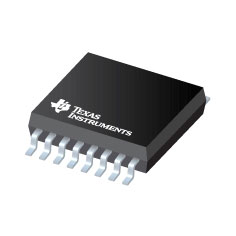The Importance of Electronic Components in Modern Technology
2025-03-28
In today’s rapidly evolving world, electronic components are the backbone of virtually every device and system we rely on. From smartphones to complex industrial machinery, electronic components are critical to making modern technology function. These small but powerful parts have revolutionized industries and shaped the way we interact with the world.
In this blog, we’ll explore what electronic components are, why they are so important, and how they contribute to the technology we use every day.
What Are Electronic Components?
Electronic components are the individual devices or elements that make up an electronic circuit. They control, manage, and direct the flow of electricity through the circuit, allowing the circuit to perform specific tasks. These components come in various types, including resistors, capacitors, transistors, diodes, and integrated circuits (ICs), each playing a vital role in ensuring the circuit functions correctly.
Electronic components can either be active or passive:
- Active Components: These components require an external power source to operate. Examples include transistors, diodes, and integrated circuits.
- Passive Components: These components do not require external power to function. They include resistors, capacitors, and inductors.
Types of Electronic Components
Here are some of the most common types of electronic components:
1. Resistors
Resistors are one of the most basic electronic components. They are used to limit or regulate the flow of electrical current within a circuit. They are typically used to protect delicate components from damage due to excessive current. Resistors come in various values and sizes, and their resistance is measured in ohms.
2. Capacitors
Capacitors store electrical energy temporarily and release it when needed. They are essential in smoothing power supplies, filtering signals, and stabilizing voltages in circuits. Capacitors are commonly used in electronic devices like radios, televisions, and computers.
3. Transistors
Transistors are crucial for amplifying electrical signals and acting as switches. They are fundamental to the operation of nearly every modern electronic device, including computers, smartphones, and televisions. Transistors are used to control the flow of current, making them essential for logic operations in integrated circuits.
4. Diodes
Diodes allow current to flow in one direction only, making them perfect for rectifying alternating current (AC) into direct current (DC). They are used in applications ranging from power supplies to protecting circuits from voltage spikes.
5. Inductors
Inductors are used to store energy in a magnetic field when current flows through them. They are mainly used in power supplies and signal processing, as well as in radio-frequency applications.
6. Integrated Circuits (ICs)
Integrated circuits are complex assemblies of many electronic components, such as transistors, resistors, and capacitors, all embedded on a single chip. ICs are used in virtually every modern electronic device, from computers to smartphones and household appliances. They significantly reduce the size and cost of electronic circuits.
7. Connectors and Switches
Connectors are used to join various components in an electronic system, while switches are used to control the flow of electricity. These components play a critical role in enabling devices to connect, turn on or off, and operate as intended.
Why Are Electronic Components Important?
The role of electronic components cannot be overstated. They are the building blocks of all modern technology and are involved in nearly every aspect of our daily lives. Below are some reasons why these components are so vital:
1. Enabling Technological Advancements
Electronic components are at the heart of all technological advancements. Without them, we wouldn’t have smartphones, computers, medical devices, or even basic household appliances. As technology continues to evolve, the demand for more advanced and efficient electronic components increases.
2. Miniaturization of Devices
The constant advancement in electronic components has led to the miniaturization of technology. Smaller, more efficient components have enabled the creation of more compact devices without sacrificing performance. This has led to the development of wearable technology, more powerful mobile devices, and more compact consumer electronics.
3. Improving Efficiency and Performance
As electronic components become more sophisticated, they allow devices to become more energy-efficient and powerful. For example, modern power management ICs help reduce the energy consumption of electronic devices, making them more environmentally friendly and cost-effective.
4. Enhancing Connectivity
In today’s interconnected world, electronic components are crucial for enabling communication between devices. From Wi-Fi and Bluetooth to advanced wireless networks, the development of electronic components has made it possible for devices to connect and communicate with each other seamlessly.
5. Driving Innovation in Various Industries
Electronic components are not only critical in consumer electronics but also play a significant role in industries like automotive, healthcare, aerospace, and manufacturing. For example, automotive electronic components enable advancements in driver assistance systems and autonomous vehicles, while medical devices rely on precise electronic components to function correctly.
The Future of Electronic Components
The future of electronic components looks incredibly promising. With the rise of emerging technologies like 5G, the Internet of Things (IoT), and artificial intelligence (AI), the demand for advanced, high-performance electronic components will continue to grow. Companies are focusing on developing components that are more energy-efficient, smaller in size, and capable of handling increasingly complex tasks.
Additionally, as sustainability becomes more important, there is a growing emphasis on creating environmentally friendly electronic components that minimize waste and energy consumption. The development of recyclable and biodegradable materials for electronic components could play a key role in reducing the environmental impact of electronic waste.
Conclusion
Electronic components are the backbone of modern technology, enabling the creation and operation of the devices we use every day. They allow for the advancement of technology, increase the efficiency of devices, and enhance connectivity across industries.



